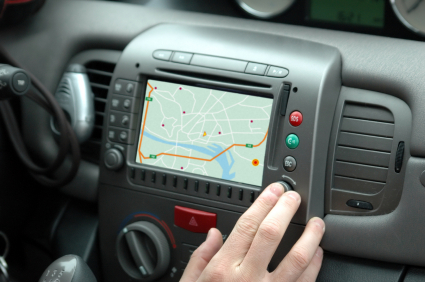Unlocking New Possibilities: The Impact of GPS Technology in Maritime, Surveying, and Transportation Industries
This comprehensive article explores how GPS technology has transformed industries such as maritime navigation, surveying, aviation, and fleet management. Detailing its benefits of accuracy, safety, and efficiency, it highlights recent innovations and future potential in these sectors. GPS's evolution continues to revolutionize transportation and logistics, providing crucial support for modern infrastructure. An essential read for professionals seeking insights into GPS's vast industrial impact and emerging trends shaping the future of navigation and management systems.

Unlocking New Possibilities: The Impact of GPS Technology in Maritime, Surveying, and Transportation Industries
Global Positioning System (GPS) technology has become a cornerstone of modern navigation, surveying, and transportation systems. Since its initial adoption by civilian sectors, particularly for surveying purposes, GPS has expanded dramatically due to its extraordinary precision, reliability, and ease of use. The evolution of GPS technology, combined with other advancements in information technology, has revolutionized a multitude of industries, enabling safer, more efficient, and more cost-effective processes. Today, industries such as maritime navigation, land surveying, aviation, and fleet management leverage GPS to optimize operations, improve safety standards, and reduce operational costs.
Land and Water Surveying Revolutionized
Historical land surveying relied heavily on physical measurement tools, such as theodolites, tapes, and levels. These traditional methods demanded significant manpower, extensive time, and considerable financial investment, especially when surveying difficult terrains or expansive water bodies. The introduction of GPS technology has transformed this field by providing highly accurate, satellite-based positioning data that simplifies the surveying process. Modern surveyors can now obtain precise location information over large areas without the need for fixed reference points or extensive equipment setups, significantly reducing costs and turnaround times.
Maritime Navigation: Navigating in Challenging Conditions
Navigating ships across vast oceans presents unique challenges, including limited visibility, unpredictable weather, and the risk of collision or straying off course. GPS provides maritime vessels with precise positioning data, enabling safe navigation even during fog, storms, or nighttime conditions. Maritime agencies and shipping companies depend on GPS for route planning, collision avoidance, and tracking their fleet in real-time, which enhances safety and operational efficiency. GPS-based systems also facilitate port docking procedures and marine resource management with higher accuracy.
Aviation Management and Air Traffic Control
In the aviation industry, precise positioning is critical for maintaining safe and efficient airspace operations. GPS technology allows air traffic controllers to monitor aircraft positions accurately, regardless of weather or visibility issues. This capability is vital in busy airports and congested routes, reducing the risk of mid-air collisions and enabling optimized flight paths. As a result, airlines can achieve shorter flight times and reduced fuel consumption. Additionally, GPS is integrated into landing systems, enabling precise landings and facilitating the development of advanced navigation procedures like RNAV (Area Navigation).
Fleet Management and Logistics Optimization
The logistics and transportation sectors heavily rely on GPS for fleet management. Tracking vehicle locations in real-time enables companies to monitor deliveries, optimize routes, and improve customer service. Advanced GPS systems provide insights into vehicle speed, stop durations, fuel consumption, and maintenance needs, allowing managers to make data-driven decisions. This increases fleet utilization, reduces operational costs, minimizes delays, and enhances overall efficiency. GPS has also supported the rise of delivery services and on-demand transportation platforms, transforming how goods and people are moved globally.
In conclusion, GPS technology has fundamentally reshaped multiple industries, bringing increased accuracy, safety, and operational efficiency. As GPS continues to evolve and integrate with emerging technologies such as IoT and AI, its role will only expand, unlocking even more innovative applications across sectors. From revolutionizing traditional surveying methods to streamlining maritime and aerial navigation, GPS remains a pivotal component of modern infrastructure, economy, and society's progress.





